It’s that time of year again. Flu, RSV, upper respiratory infections and COVID – OH MY! Everything is everywhere all at once and it’s all running rampant. Besides handwashing and sanitizers, there are a lot of natural and herbal remedies that you can stock your medicine cabinet and home apothecary with to build immunity naturally and fight illness.
At Wholly Holistic, we have everything below AND MORE.
Build Immunity Naturally with Elderberry
Ah yes, good old elderberry. In the shop we have it in multiple forms: capsules, tinctures, dried berries, teas, syrup kits and more. This tiny berry is loaded with antioxidants and healing properties and if you have nothing else in your home apothecary for boosting immunity and relieving sickness, elderberry should be it.
Elderberries (Sambucus) grow in droopy clumps on shrubs and have elegant white flowers. The plant is native to Pennsylvania (Sambucus nigra ssp. canadensis) as well as other parts of North America, Western Asia, North Africa and Europe. Many wildlife depend on foraging wild elderberry during migration.
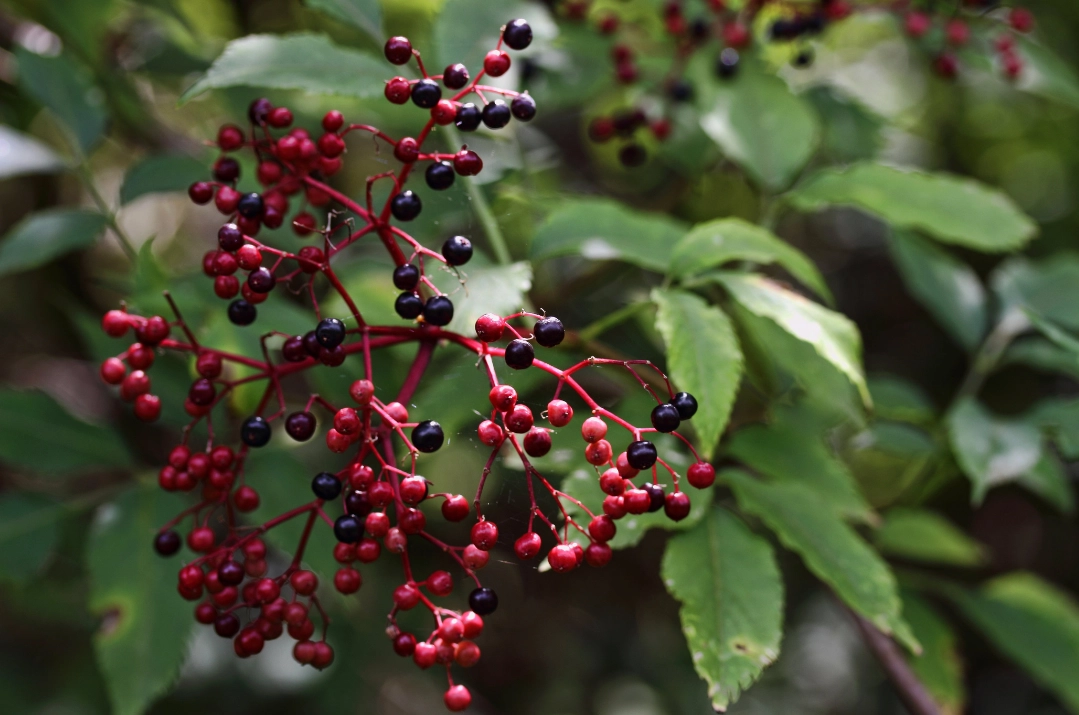
Elderberry Benefits
Elderberry is loaded with fiber, antioxidants and vitamins and minerals, including: vitamin C, vitamin A, potassium, folate, calcium and iron. But what makes elderberries magical, is their high polyphenol count. Polyphenols are plant compounds that reduce inflammation and boost our immune systems. The berries are also high in antioxidants, which helps us heal faster and prevents the day to day damage that happens in our cells.
Elderberry Cautions
Elderberry leaves, stems and seeds contain a cyanogenic glycoside called sambunigrin, which is poisonous and dangerous to your health. Never eat the leaves or stems and never eat the berries raw. Drying and cooking the berries removes these toxins and makes them safe to ingest. The flowers are safe to eat as well and are delicious in elderflower syrups. If you’re unsure about cooking with the raw berries, not to worry! Just buy elderberries in our premade tinctures, capsules, syrup kits and more.
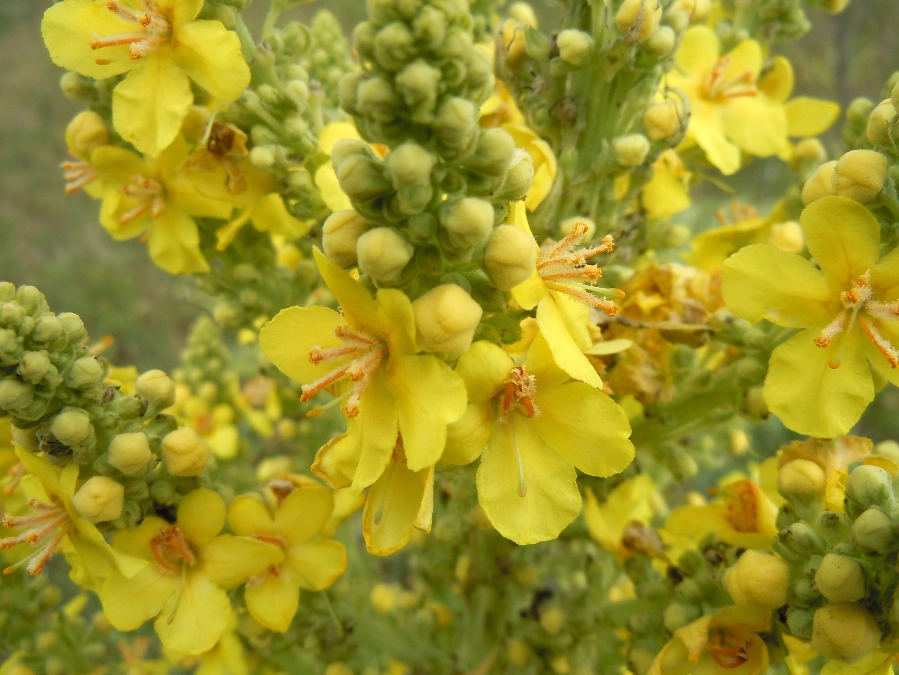
Build Immunity Naturally with
Mullein
The powerhouse of lung and bronchial support, mullein, pronounced mull-en, is another must have for your medicine cabinet. Not only does mullein taste delicious, it’s also soothing for your throat and lungs. We carry mullein in our loose leaf apothecary as well as in ready made tinctures, bagged teas and capsules.
Mullein (Verbascum thapsus) is native to Pennsylvania and can be found pretty much everywhere along roadsides and forests. The plants are herbaceous biennials that grow up to 7 feet tall and have hairy leaves with long, elegant stalks packed with closely grouped yellow flowers. The plant is a wonderful addition to your wild garden and will attract a lot of pollinators.
Mullein Benefits
What makes mullein so amazing is mucilage, a thick, gel-like substance in mullein leaves that soothes irritated mucous membranes. Mucilage is found in flowers and leaves of the plant and coats the moist linings inside your respiratory tract (or, your mucous membranes) to provide anti-inflammatory relief. Reducing the inflammation reliefs coughs and helps you to expel the mucus easier.
Mullein Cautions
To date, there are no side effects of mullein. That said, applying high potency mullein directly to your mucous membranes or your skin may cause a skin reaction. As long as mullein is diluted, it is generally safe to consume.
Build Immunity Naturally with Echinacea
Need flower power? Echinacea is it! Just about every blend we carry for immune support has echinacea in it. Commonly known as purple coneflower, echinacea (Echinacea purpurea) has been used as an herbal remedy for hundreds of years to prevent colds, reduce inflammation, relieve anxiety and more.
Native to Pennsylvania, echinacea comes in a variety of plants, most popularly the purple coneflower. The flowers are daisy-like, with brown seed centers and delicate purple petals. They are extremely heat tolerant and do well in average soil.
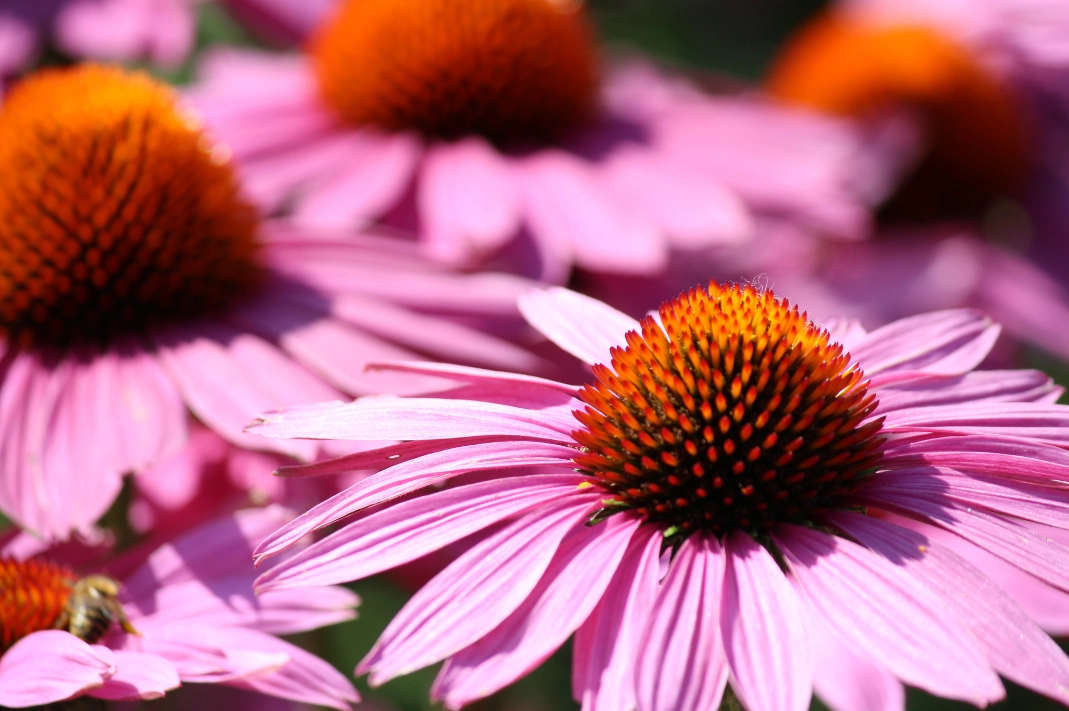
Echinacea Benefits
The plant is popular for its cold and flu fighting properties and can also help treat pain, inflammation, migraines, lower blood sugar and more. The flowers and roots contain flavonoids, cichoric acid and rosmarinic acid which help protect against oxidative stress that can lead to diabetes and heart disease.
Every part of the echinacea plant, from roots to petals, are edible and good for you!
Roots: Nutrient-rich and can be used in teas and soups like this delicious miso soup
Leaves: Can be used in salads and teas
Flowers: Can be used in teas and jellies like wildflower jelly
Echinacea Cautions
Since echinacea stimulates your immune system, take caution if you have an immune-related health issue, such as HIV/AIDS, or if you have an autoimmune disorder or are taking immune-suppresant drugs. Otherwise, echinacea is generally safe for use with very few side effects reported.
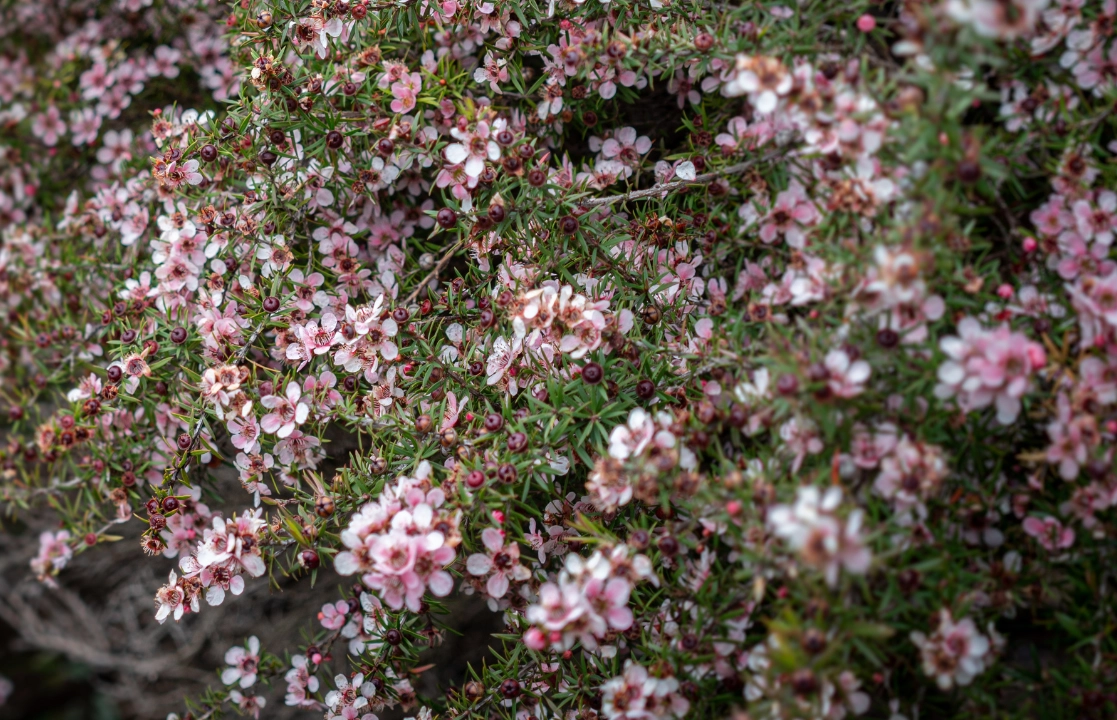
Build Immunity Naturally with Manuka Honey
Honey, in general, is so good for you and manuka honey is even better, especially when you’re trying to prevent seasonal colds and flu or build immunity naturally. But did you also know that manuka honey is excellent for skin conditions and wound care, too? In fact, it’s not only good for human skin, it’s also good for animals!
Manuka honey is produced exclusively by European honey bees that pollinate the flowers of the manuka plant in Australia and New Zealand. The Indigenous Maori people were the first to utilize the manuka plant for a wide variety of medicinal remedies. Around 1839, Mary Bumby, brought the first European honey bees to the East Coast of the North Island where there was an abundance of Manuka bushes and manuka honey was born.
There are several grades of manuka honey that are classified by their methylglyoxal, or MGO, content. The higher the number, the higher the concentration of potential healing properties. In the shop we carry three strengths, 350 MGO, 550 MGO and 830 MGO.
Manuka Honey Benefits
For cold and flu relief, manuka honey is an expectorant (dissolves mucus and makes your cough more productive) and soothes sore throats. When applied topically to the skin, manuka honey helps fight bacteria and stimulates the formation of new blood capillaries. There is research to suggest that unlike antibiotics, manuka’s bacteria fighting components do not lead to resistant bacterial strains. Manuka honey is also great for digestion and helping to balance the gut. There are even some promising studies in animals to suggest that manuka honey may help fight breast cancer tumors, colorectal cancer tumors and melanoma.
Manuka Honey Cautions
Do not feed honey of any kind to infants (children under 1 year of age) because of the risk for infant botulism. People who are allergic to bees may also find they are allergic to honey so use caution before consuming. People with diabetes may also want to limit their manuka honey consumption as it may increase your blood sugar levels.
Build Immunity Naturally with Oregano Oil
Yes, the same oregano you use to cook with is distilled into oil to help colds, flu RSV and other upper respiratory conditions! One of our top sellers at the shop, oregano oil is exceptionally good to help fight bacteria, fungal infections, lower cholesterol, build immunity, and more.
Oregano (Origanum vulgare) is a perennial herb and thrives in Pennsylvania. You can grow it directly in your garden or in containers. Oregano thrives in full sun, well-drained soil and can tolerate dry conditions once established.
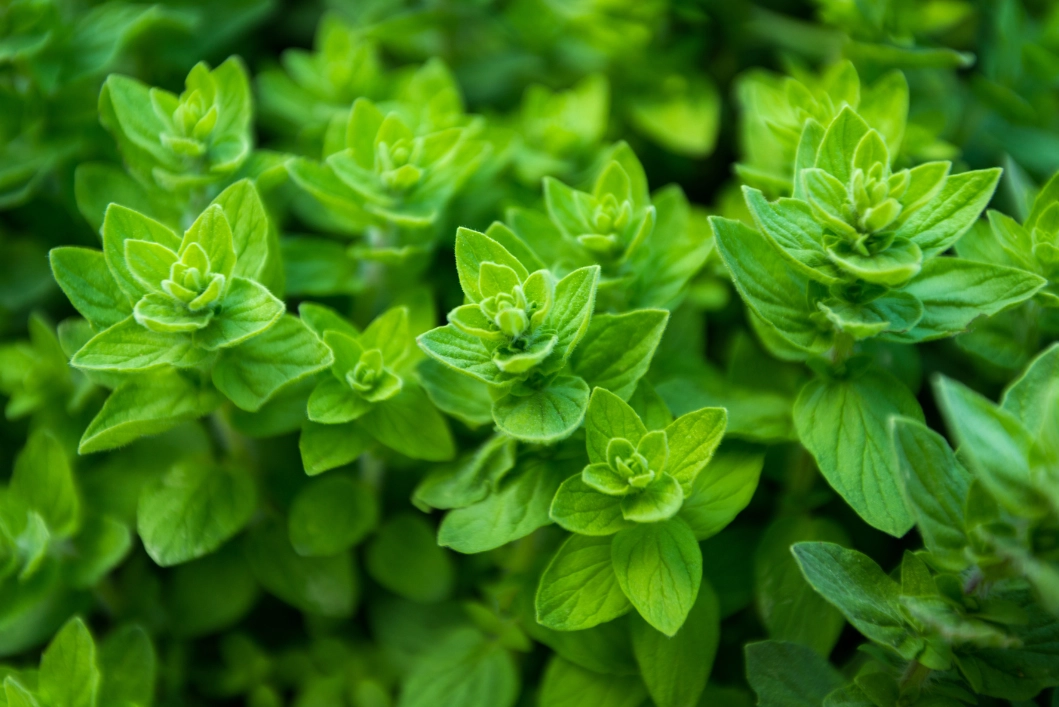
Oregano Oil Benefits
What makes oregano special is that it contains three compounds that have powerful antioxidant properties:
- Carvacrol. Has been shown to stop the growth of several different types of bacteria.
- Thymol. This natural antifungal can also support the immune system and protect against toxins.
- Rosmarinic acid. This powerful antioxidant helps protect against damage caused by free radicals.
Research shows that these compounds are also potentially good for anti-inflammatory, antidiabetic and for the suppression of cancer cells.
Oregano Oil Cautions
Unlike the herb you cook with, commercially produced oregano oil is highly concentrated so it is important that you follow the instructions on the packaging and not exceed the recommended dosage. Oregano is from the mint family, so if you’re allergic to mint, basil, lavender, etc. you may also be allergic to oregano. Oregano oil, even with a carrier oil, may cause a skin rash.
What’s Next?
Stock up! Stop into the shop and grab these essentials and more to make sure you’re prepared if colds, flu, RSV, and COVID hit your home. Build immunity naturally with our carefully selected remedies. At Wholly Holistic, we can work with you to meet your health goals and build a wellness routine. Stop in, call, or message us today to ask all your questions and to schedule a health coaching appointment with one of our certified practitioners.
See you at the shop!
5 Ways to Build Immunity Naturally – Sources
National Center for Complementary and Integrative Health, November 2024: Facts on Elderberry
National Center for Complementary and and Integrative Health, November 2024: Echinacea Facts
USA Today, October 2024: What is elderberry good for? Dietitians weigh in.
Healthline, November 2023: 9 Benefits and Uses of Oregano Oil
Health.com, September 2023: Health Benefits of Echinacea
Healthline, March 2023: Echinacea: Benefits, Uses, Side Effects, and Dosage
Manuka Honey of New Zealand, February 2023: The History of Original Manuka Honey
Penn State Extension, February 2022: Elderberry in the Garden and the Kitchen
Cleveland Clinic, December 2022: How Mullein Benefits Your Lungs
National Library of Medicine, July 2020: Oregano Oil and Its Principal Component, Carvacrol, Inhibit HIV-1 Fusion into Target Cells
Healthline, September 2018: Oregano Oil Side Effects
National Library of Medicine, November 2018: Antibacterial activity of Manuka honey and its components: An overview
National Library of Medicine, June 2017: Essential Oils of Oregano: Biological Activity beyond Their Antimicrobial Properties
National Library of Medicine, February 2013: Intravenous Administration of Manuka Honey Inhibits Tumor Growth and Improves Host Survival When Used in Combination with Chemotherapy in a Melanoma Mouse Model
Drugs.com, no date: Mullein
National Cancer Institute, no date: Manuka honey

